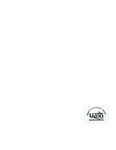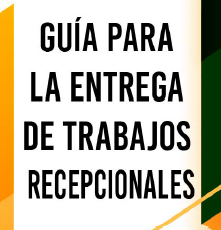Mostrar el registro sencillo del ítem
English learning self-efficacy beliefsn of mexican students in a belizean high school.
| dc.contributor.author | Colugio, Ana Cristina | |
| dc.date.accessioned | 2022-02-15T15:00:42Z | |
| dc.date.available | 2022-02-15T15:00:42Z | |
| dc.date.issued | 2021 | |
| dc.identifier.uri | http://hdl.handle.net/20.500.12249/2773 | |
| dc.description.abstract | According to Bandura ( 1997), studying self-efficacy is significant beca use it has an influence on the academic performance, emotions and beliefs a person has about his or her capabilities to execute a certain task. Bandura (1997) argues that the sense ofself-efficacy is influenced by four sources: previous experience, vicarious experience, feedback and physiological and emotional states. If a person has a low sense of self-efficacy, this may adversely influence his/her learning and then his/her academic performance. A positive sense of self-efficacy can help to enhance students' performance. Literature has also revealed that beliefs on selfefficacy have strongly influenced English learning (Alawiyah, 2018; Villanueva, 2015, Sansores, 20 18). Therefore, the objective of this study was to explore the sense of selfefficacy beliefs ofyoung students who commute toan English' speaking country to study in high school, as well as to identify how the four sources of self-efficacy have influenced their beliefs, what caused them to make the decision of studying in a foreign country and how do they describe their experiences. The participants were 3 young Mexican students between the ages of 11 and 16. To collect the data 3 serni-structured interviews were done to each of the participants. The interviews and the interpretation of the data were transcribed following the strategies proposed by Nohl (2009) and Creswell (2005). Then the data was analyzed in light ofBandura's theory of self-efficacy and the resu1ts of a review of the relevant literature. The resu1ts show that these students had a strong sense of self-efficacy in their capability to learn English before going to study in Belize due to the miscalibration. This miscalibration was caused by verbal persuasion received from their teachers and lack of accurate measuring of their English skills. Furthermore, their beliefs weakened during the frrst months in Belize. However, they increased to a higher level of self-efficacy after six months. Results also indicate that verbal persuasion and physiological and affective states were the most influential sources, contrary to enactive rnastery experiences and vicarious experiences which were the least influential ones. | |
| dc.description.provenance | Submitted by Yeni Martin Cahum (yenimartin@uqroo.edu.mx) on 2022-02-15T15:00:41Z No. of bitstreams: 1 BF637.S38.2021-2773.pdf: 3769176 bytes, checksum: 84eb6ca99544c13faf771710d23f6559 (MD5) | |
| dc.description.provenance | Made available in DSpace on 2022-02-15T15:00:42Z (GMT). No. of bitstreams: 1 BF637.S38.2021-2773.pdf: 3769176 bytes, checksum: 84eb6ca99544c13faf771710d23f6559 (MD5) Previous issue date: 2021 | |
| dc.format | ||
| dc.language.iso | eng | |
| dc.publisher | Universidad de Quintana Roo | |
| dc.rights.uri | http://creativecommons.org/licenses/by-nc-nd/4.0 | |
| dc.subject | Autoefiacia | |
| dc.subject | Inglés -- Estudio y enseñanza -- Hablantes extranjeros | |
| dc.subject.classification | HUMANIDADES Y CIENCIAS DE LA CONDUCTA::LINGÜÍSTICA | |
| dc.subject.lcc | BF637.S38 | |
| dc.title | English learning self-efficacy beliefsn of mexican students in a belizean high school. | |
| dc.type | Tesis de licenciatura | |
| dc.type.conacyt | bachelorThesis | |
| dc.rights.acces | openAccess | |
| dc.identificator | 4||57 | |
| dc.audience | generalPublic | |
| dc.division | Biblioteca Unidad Académica Chetumal, Santiago Pacheco Cruz |
Ficheros en el ítem
Este ítem aparece en la(s) siguiente(s) colección(ones)
-
Licenciatura [2483]






